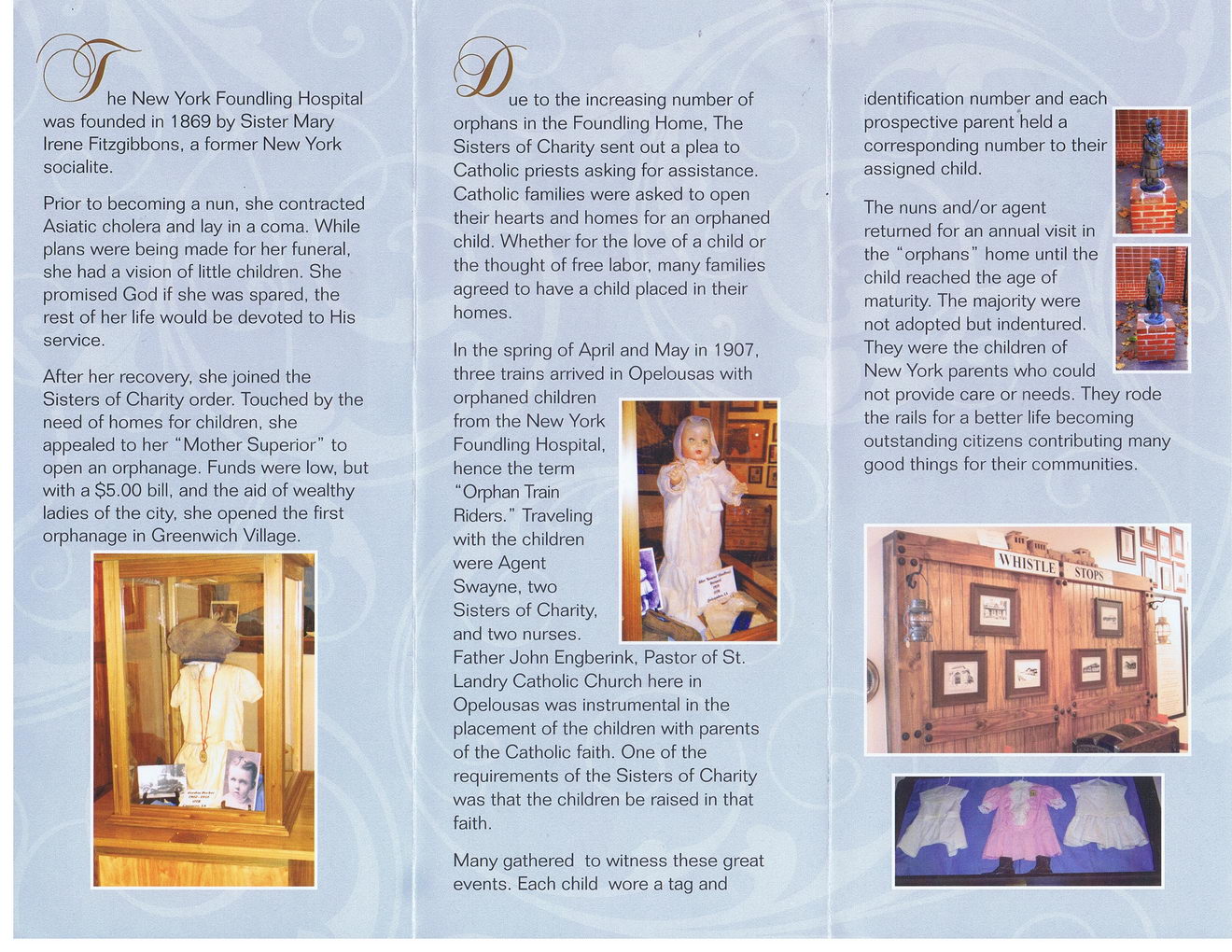This text was obtained via automated optical character recognition.
It has not been edited and may therefore contain several errors.
X''—S he New York Foundling Hospital was founded in 1869 by Sister Mary Irene Fitzgibbons, a former New York socialite. Prior to becoming a nun, she contracted Asiatic cholera and lay in a coma. While plans were being made for her funeral, she had a vision of little children. She promised God if she was spared, the rest of her life would be devoted to His service. After her recovery, she joined the Sisters of Charity order. Touched by the need of homes for children, she appealed to her “Mother Superior” to open an orphanage. Funds were low, but with a $5.00 bill, and the aid of wealthy ladies of the city, she opened the first orphanage in Greenwich Village. SF ue to the increasing number of orphans in the Foundling Home, The Sisters of Charity sent out a plea to Catholic priests asking for assistance. Catholic families were asked to open their hearts and homes for an orphaned child. Whether for the love of a child or the thought of free labor, many families agreed to have a child placed in their homes. In the spring of April and May in 1907, three trains arrived in Opelousas with orphaned children from the New York Foundling Hospital, hence the term “Orphan Train Riders.” Traveling with the children were Agent Swayne, two Sisters of Charity, and two nurses. Father John Engberink, Pastor of St. Landry Catholic Church here in Opelousas was instrumental in the placement of the children with parents of the Catholic faith. One of the requirements of the Sisters of Charity was that the children be raised in that faith. Many gathered to witness these great events. Each child wore a tag and identification number and each prospective parent held a corresponding number to their assigned child. The nuns and/or agent returned for an annual visit in the “orphans” home until the child reached the age of maturity. The majority were not adopted but indentured. They were the children of New York parents who could not provide care or needs. They rode the rails for a better life becoming outstanding citizens contributing many good things for their communities.

Orphan Train Riders of BSL Document (002)